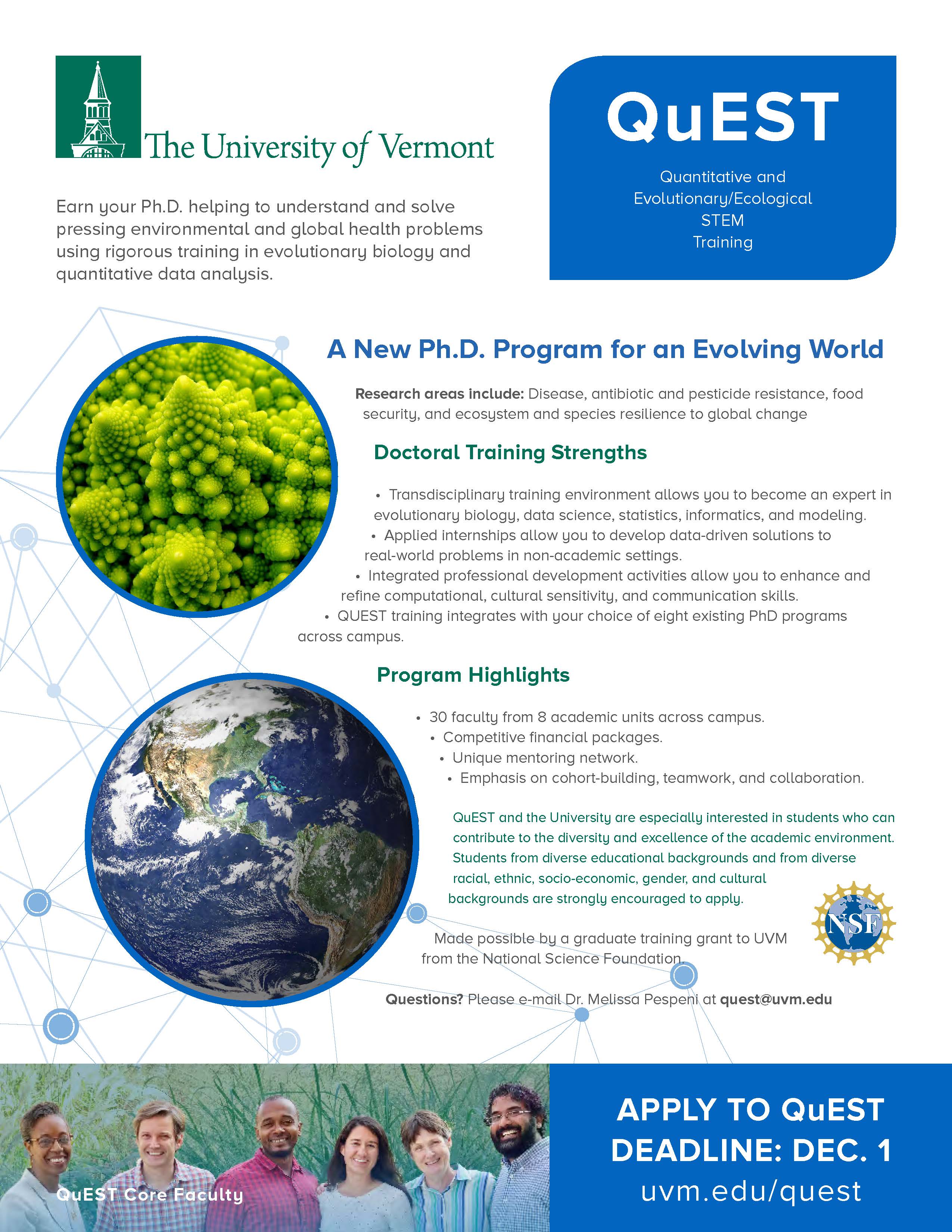University of Vermont
Graduate Programs Overview
Our program is defined by excellent students, dedicated faculty advisors and superb staff. We will work with you to design a set of courses, a research project or other activities that will prepare you for your career in academic, medical or private sector research; government work; or teaching at the baccalaureate level.
Regardless of your career goals, we’ll help you develop as a research scientist and network and find the right position for your next step. All of our students learn to teach undergraduates, so you will hone your teaching skills which will serve you well, even if teaching is not your ultimate career goal.
Our Programs
The M.S. and Ph.D. programs in biology are geared to the needs and interests of each individual student. Graduate students may be admitted to work with a specific faculty sponsor, or may choose to rotate through appropriate laboratories to identify a faculty sponsor. Upon arrival, incoming graduate students take a diagnostic examination in four major subject areas. Based on the results, faculty work with each student to map out the first year’s course work. During that first year, graduate students interact with faculty and other students to further define their areas of interest.
Typically, the student has chosen a studies committee, identified a major advisor, and started work on a thesis topic by the end of his/her first year. Later in the student’s tenure, a written comprehensive examination compiled by the studies committee must be completed. Finally, a written thesis must be submitted and defended before the Thesis Defense Committee.
Please visit our website for more information.
Learn about our new PhD Program for an evolving world, email quest@uvm.edu
